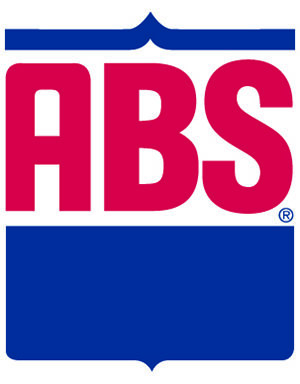In an increasingly competitive and complex industry, producers are looking for an edge. Whether making nutritional decisions for herd management, conducting research to learn more about how genetics can improve traits such as milk production or managing more with less, today’s dairy producers are getting busier every day. If there are tools available to help improve the performance traits of their herd or to increase productivity, producers are willing to give them a try.
Genetic testing has emerged as one of the greatest advancements in the livestock industry since the advent of frozen semen.
The DNA in every cell of dairy cattle contains the code that determines the genetic basis and overall potential of that animal – from calving ability to reproductive traits, to fat and protein content within milk production.
Producers can use genetic testing to exploit these traits for effective selection. Genetic testing is a tool that increases the accuracy of predicting an animal’s value.
It therefore allows dairymen to select superior heifers at an earlier age to optimize breeding decisions, and provides information for producers to make better selection decisions to accelerate genetic progress in the herd.
These are critical elements that can impact overall herd profitability and give a producer a competitive edge.
Given dairymen’s tradition of adopting new technologies that could increase herd profitability, it is surprising that there has been slower adoption of genetic testing investments.
This could be due in part to the realization that the majority of economically important traits in livestock are multifunctional traits that are difficult ones to tackle using genetic testing.
However, in the last decade, improving production traits using genetic markers has progressed from using only a few hundred SNPs (pronounced ‘snips’) to tens of thousands.
Increasing the number of SNPs in the evaluation of a complex trait controlled by many genes (such as reproduction traits) improves the accuracy of the genetic test.
The cost of genetic testing is becoming more affordable every day, with genetic tests that evaluate 3,000 SNPs at less than $50 and genetic tests that evaluate 50,000 SNPs at less than $150.
These changes have resulted in more and more dairymen investigating genetic testing for their herds.
It’s well known that genetic testing starts with the collection of a DNA sample. Collecting DNA samples is not a new concept for dairy producers. As early as 1990, parentage testing moved from blood typing to DNA-typing.
This change required producers to quickly become experts in cleaning and counting tail hair roots, which has been the most common method of collecting DNA samples from livestock.
However, new technologies benefit from more reliable samples that provide larger amounts of DNA. Tail hair roots are inefficient to process in the laboratory and can result in failed samples due to lack of DNA in the sample.
This necessitates a repeat collection, which incurs additional cost and effort.
While blood collection is also an option, its cost is prohibitive as it requires a veterinarian or trained technician. Also, blood samples are complex and costly to ship to the processing lab.
Many producers don’t realize that the increasing prevalence of genetic testing has resulted in the development of new tools for DNA collection.
The introduction of new DNA collection methods, such as nasal samples, are providing producers with a quick, reliable and easy-to-use method that also streamlines the entire DNA handling process, from collection straight through to results.
A December 2009 survey of producers shows that while blood samples or tail hair roots are still the most common methods for DNA sampling, producers are open to new methods that are easier, more reliable or more cost-effective.
When asked about their biggest challenge in obtaining DNA samples today, 41 percent of producers emphasized the difficulty associated with collecting a clean sample with sufficient quantity of DNA.
Twelve percent cited the frequency of failed results in the lab due to a poor-quality sample and 18 percent noted the time required to collect the sample.
Each survey respondent was given the chance to try collecting nasal samples with a DNA product, and 94 percent of the respondents indicated that ease-of-use was the number one benefit associated with collecting nasal samples and 82 percent found the process quicker compared to their current method.
DNA sample collection methods are an area where the economic health of a farm can be improved, but may not be immediately apparent when looking at the bottom line.
For example, the time saved for the initial sample collection and not having to re-collect tail hair samples (which are prone to contamination and sample degradation) can be as good as money in the bank.
While nasal swabs are a relatively new technology, they have proven to be an effective method of DNA collection for genetic testing for dairy cattle genetic analysis.
Livestock genetic testing is a growing management tool within the industry. Today, it’s almost impossible for dairy producers not to have had some exposure to the use of DNA technologies in cattle.
The science of livestock genetics will continue to evolve and new traits of economic importance will continue to be identified.
Advancements in the last decade have been unprecedented and the next five years will bring even more change. Perhaps we will soon see cost-effective genetic tests that sequence and evaluate the entire cattle genome.
Whatever the future of genetic testing brings, dairymen have the opportunity to gain a competitive edge using these technologies. PD
References omitted due to space but are available upon request to editor@progressivedairy.com.
PHOTO: Taking a nasal swab, as demonstrated here by Ellen Maclean, product manager for DNA Genotek Inc., has been found to be easier and faster than other DNA sample collecting methods, such as tail hair roots or blood samples. Photo courtesy of DNA Genotek Inc.






